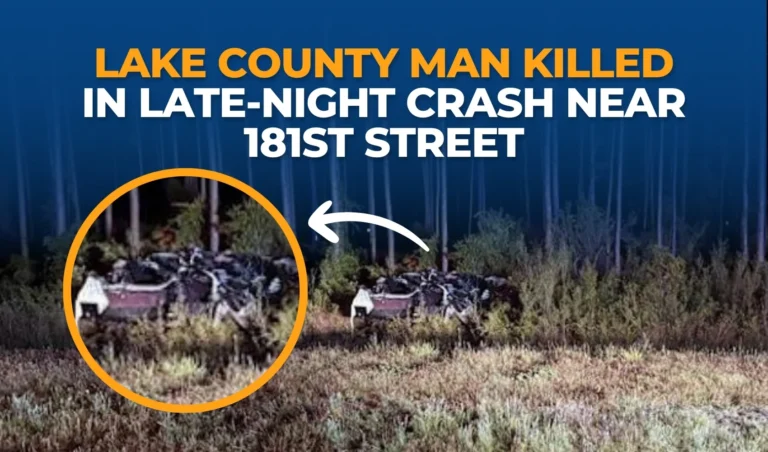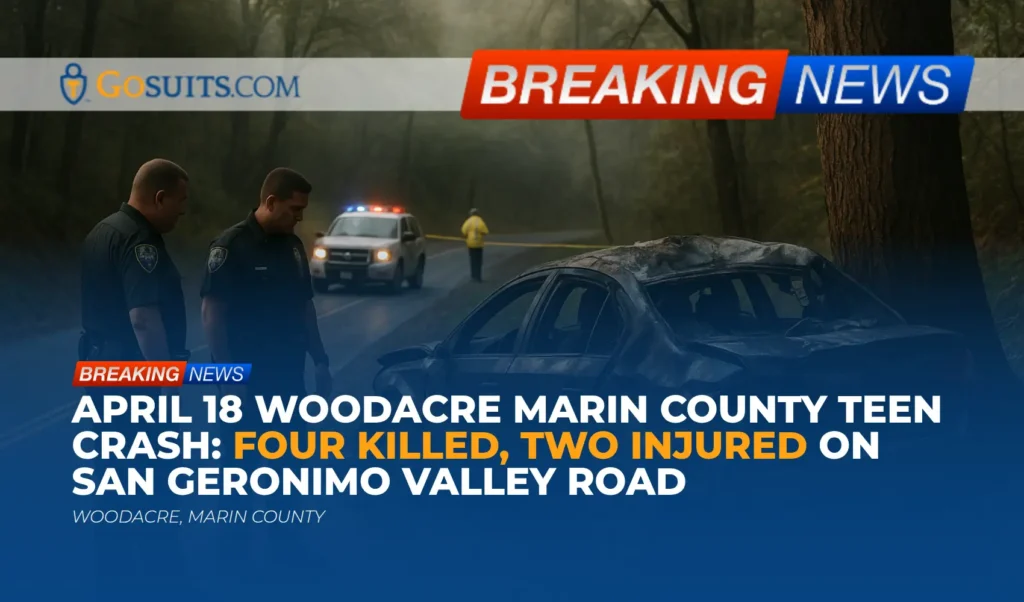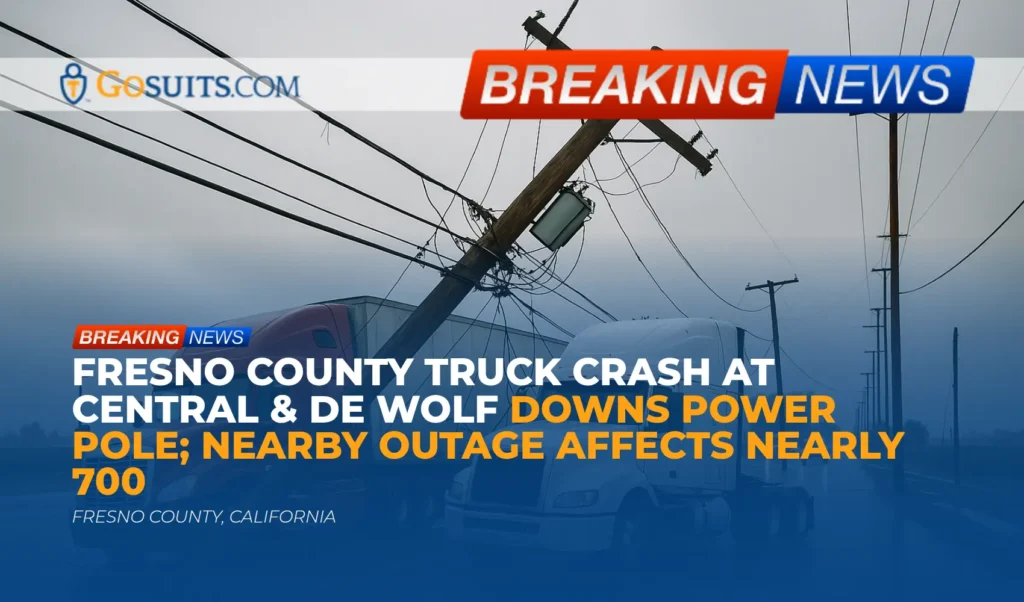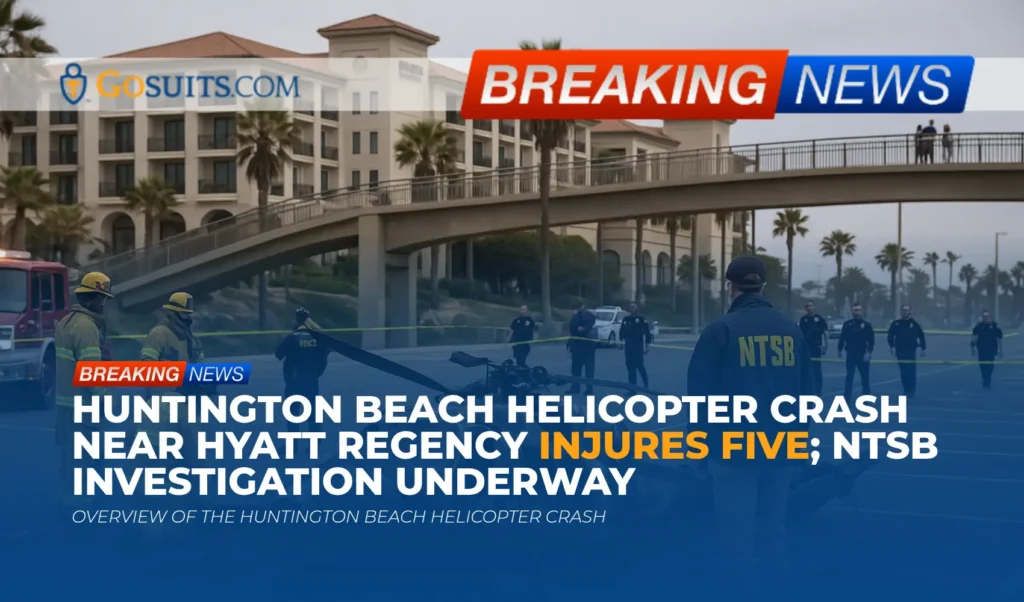A 31-year-old man from Lake County, Illinois, was killed in a fatal single-vehicle crash late Friday night near the intersection of 181st Street and Georgia Street, in unincorporated Lake County.
The Lake County Sheriff’s Office confirmed that the driver, a local resident and graduate of a nearby high school, was pronounced dead at the scene at approximately 11:30 p.m. on April 18, 2025. No other vehicles were reported to be involved.
Authorities have not yet released details regarding the cause of the crash. An investigation is ongoing to determine whether factors such as speed, road conditions, mechanical failure, or environmental elements contributed to the incident.
What Families Should Know About Police Reports in Lake County Fatal Crashes
In fatal crash cases, police reports are a crucial step toward understanding the incident. These documents are completed by the Lake County Sheriff’s Office and typically include information such as vehicle position, time of impact, preliminary assessments, and witness accounts if available.
To request a police report in Lake County, families have several options:
- In Person or By Mail: Lake County Sheriff’s Office – Records Division
25 S. Martin Luther King Jr. Avenue
Waukegan, IL 60085 - Phone: (847) 377-4200
- Website: https://www.lakecountyil.gov/654/Records-Section
It’s recommended to wait 5 to 7 business days from the date of the incident before contacting the Records Division to obtain the report. Depending on the complexity of the report, it may take this time for completion and approval.
Additional documents, such as toxicology results, autopsy reports, or accident reconstruction findings, may be released separately through the Lake County Coroner’s Office or other investigative units involved in the case.
Because some evidence, such as vehicle data or surveillance footage, may be time-sensitive, early assistance from a personal injury attorney can help ensure all records are preserved before they are lost or overwritten.

Commentary from a Gosuits Personal Injury Attorney
In fatal single-vehicle crashes, particularly those occurring late at night in less populated areas, it’s important to consider all potential contributing factors. Road conditions, inadequate signage, or mechanical failures can play significant roles in such incidents.
A thorough investigation should include examining the vehicle for any mechanical issues, reviewing the roadway for potential hazards, and collecting any available surveillance or traffic camera footage. Preserving this evidence promptly is crucial for understanding the circumstances surrounding the crash.
From an insurance perspective, families may be eligible for support through multiple avenues. First-party auto insurance coverage, such as medical payments coverage or funeral benefits, may apply even in single-vehicle crashes. If another vehicle was indirectly involved and fled the scene, uninsured motorist coverage might also come into play. These options depend on the specifics of the policy and how the crash is ultimately classified.
Life insurance benefits may also be available to the driver’s beneficiaries, independent of fault or investigation outcomes. This coverage can provide financial relief to families facing sudden funeral costs and long-term financial changes after the loss of a loved one.
While rare, some cases may also raise questions about municipal liability. If the crash was influenced by unsafe road design, lack of warning signs, or poor maintenance on county-managed roads, a claim may be filed against the responsible agency. However, in Illinois, these claims must comply with the Local Governmental and Governmental Employees Tort Immunity Act, which places strict limits on lawsuits against public entities. Proving liability requires clear evidence that the county was aware of the hazard and failed to address it within a reasonable time.

Navigating the aftermath of a fatal crash requires a comprehensive approach, considering all possible factors and avenues for support. Working with a personal injury attorney can help families understand their rights and options during such a challenging time.






